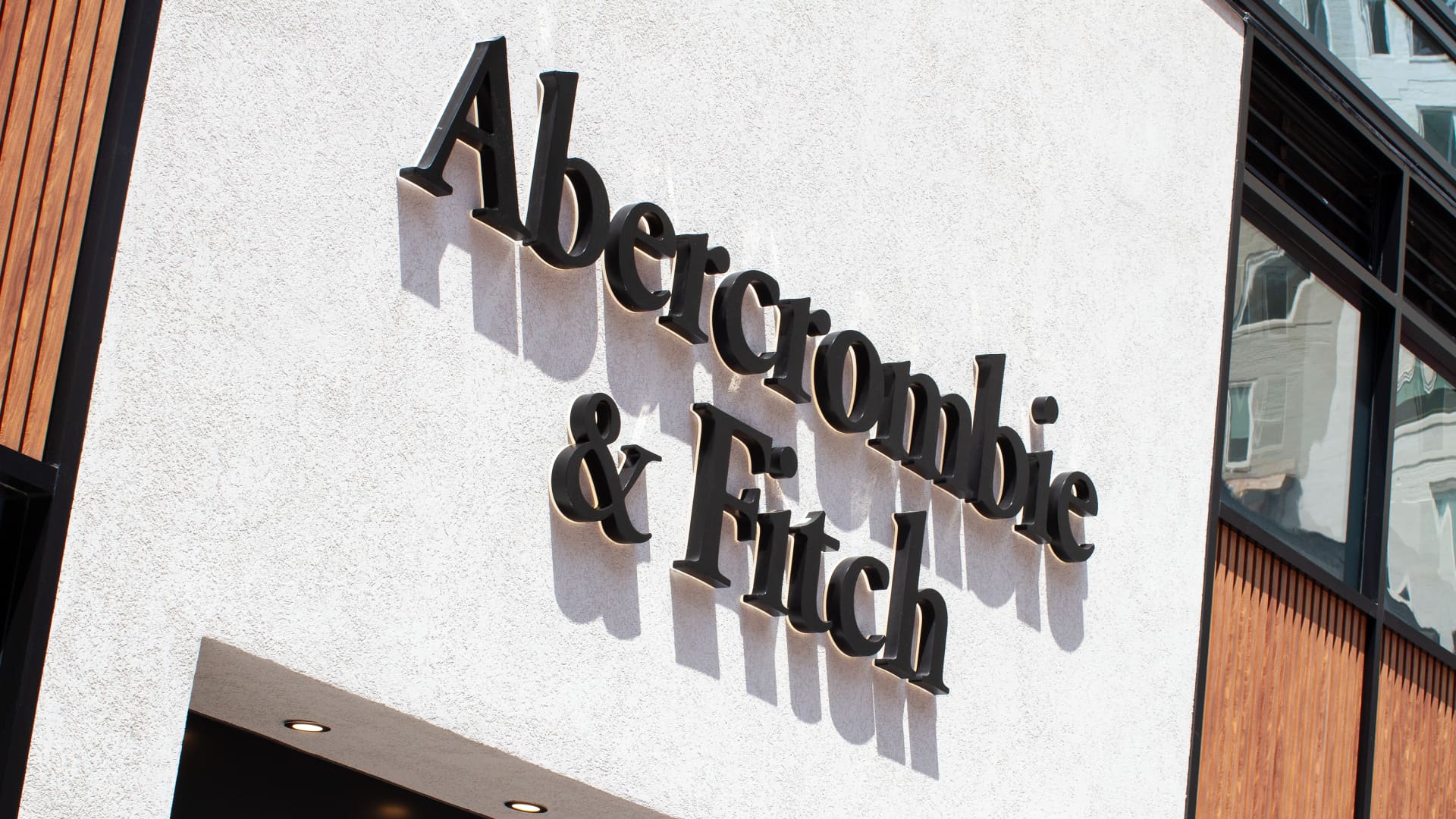Abercrombie & Fitch
Courtesy: Abercrombie & Fitch
Shares of Abercrombie & Fitch soared in early trading, after the retailer crushed Wall Street’s quarterly earnings and sales expectations and raised its forecast for the year.
On a call with investors, CEO Fran Horowitz said the retailer’s performance is the “culmination of years of hard work.” She said the company is drawing more shoppers with its wide range of fresh and fashion-forward options, from dresses to cargo pants.
“We’ve talked about it before, but we are no longer a jeans and T-shirt brand,” she said. “We certainly are a lifestyle brand today.”
And, she added, the retailer will keep opening stores and investing in its digital experience — even as the economic backdrop remains uncertain.
Here’s how the retailer did in the fiscal second quarter ended July 29 compared with what Wall Street expected, based on a survey of analysts by Refinitiv:
- Earnings per share: $1.10 vs. 17 cents expected
- Revenue: $935.3 million vs $842.4 million expected
The company’s shares jumped more than 20% in early trading Wednesday.
Net income for the three-month period rose to $56.9 million, or $1.10 per share, from a loss of $16.8 million, or 33 cents a share, in the year-ago period.
Net sales rose from $805.1 million in the year prior.
Abercrombie said it now anticipates net sales will rise by about 10% for the full fiscal year, up from $3.7 billion in the prior year. It had previously expected growth of between 2% and 4%.
It said it expects operating margins to improve, too, as costs of freight and raw materials like cotton fall. It anticipates operating margins to be in the range of 8% to 9%, compared with prior expectations of 5% to 6%.
The retailer’s sales and its stock price have shot up, as Abercrombie has reinvented its image from a mall store known for shirtless models and a strong scent of cologne to a retailer that resonates with a broader audience.
Abercrombie has also stood out because it’s defied industrywide trends. Retailers including Home Depot, Target and Walmart have all spoken about consumers who aren’t spending as freely on discretionary items, such as clothing. Foot Locker echoed similar sentiments, as its sales plummeted and it cut full-year guidance on Wednesday.
Abercrombie & Fitch
Courtesy: Abercrombie & Fitch
Abercrombie’s merchandise has evolved to offer clothing that customers can wear whether heading to the office or going out for happy hour, Horowitz said. Those items include tailored pants called Sloane, which come in different fabrics and have gotten a following through TikTok, and a collection of dresses that shoppers can wear to a party or wedding.
“We really have expanded into a lot of new categories — so this young millennial can now wear this brand from work to their weekend getaway,” she said.
As of Tuesday’s close, shares of Abercrombie had surged about 80% this year, far outpacing the approximately 14% gains of the S&P 500.
The company has also worked to boost sales at Hollister, a brand that appeals more to teens. Horowitz told investors on the call that the retailer has stepped up digital campaigns for Hollister. She said customer traffic improved in the quarter and sales growth continued into early August.
Comparable sales, a metric that takes out the impact of store openings, closings and renovations, rose 13% across the company. For the namesake brand, Abercrombie, comparable sales soared 23%. For Hollister, they rose 5% year over year.
Inventory dropped by 30% year over year, as the company managed orders closely and chased merchandise needed based on demand.
On the call with investors, Horowitz said the company’s sales grew in the second quarter across genders and all regions. In women’s apparel, she said shoppers bought dresses and pants. In men’s apparel, knit tops and pants proved popular as shoppers looked for versatile clothing that could work in different seasons and situations.
She also touted store openings, including the new Abercrombie store that opened last month on New York City’s Fifth Avenue.
The company plans to open about 35 new stores, remodel or renovate 20 and close 30, Chief Financial Officer Scott Lipesky told investors on a call.

